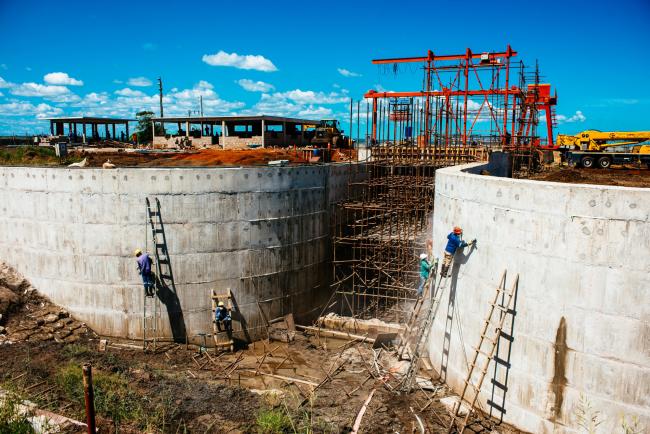Street Calls of the Week
(Bloomberg) -- The U.S. government’s development finance agency, the Overseas Private Investment Corp., aims to double investment in Africa to $12.4 billion to counter growing Chinese economic and political influence on the continent.
In October, the U.S. Congress passed a law that effectively raised OPIC’s lending cap to $60 billion from $29 billion, which increased project funding for developing nations including those in Africa to counter China, whose business practices the U.S. National Security Adviser John Bolton says are “predatory.”
OPIC now has “flexibility” since its lending cap was increased, its managing director for Africa, Worku Gachou, said in an interview in Kenya’s capital, Nairobi. The project funding will be given when the need arises, he said.
“Our lending and pipeline of projects in Africa will grow,” Gachou said. “Africa is OPIC’s largest regional exposure at $6.2 billion, and the goal and hope is for that to also increase in parallel with our new lending cap.”
While the U.S. is the largest donor to Africa, most of its money goes toward health, agriculture, and clean-water projects. By contrast, President Xi Jinping’s “Belt and Road Initiative” has focused on infrastructure with Chinese-backed investments ranging from Ivory Coast power plants to a Rwandan airport and a railway in Kenya.
Xi has defended his global infrastructure lending plan, saying it’s “not a trap as some people have labeled it.”
READ: America’s Moment of Truth in Africa - It’s Losing Out to China
The Washington-based agency “is talking to a number of companies in the ICT space” in Kenya and the region as part of its two-year investments plan in transport, information and communications technology, and the logistics sectors, Gachou said. It’s already injected $100 million into Africell Holdings Ltd., a mobile telecommunications operator, as part of its $1 billion investment for the region.
“We are really trying to grow and focus on this market,” Gachou said of ICT.
